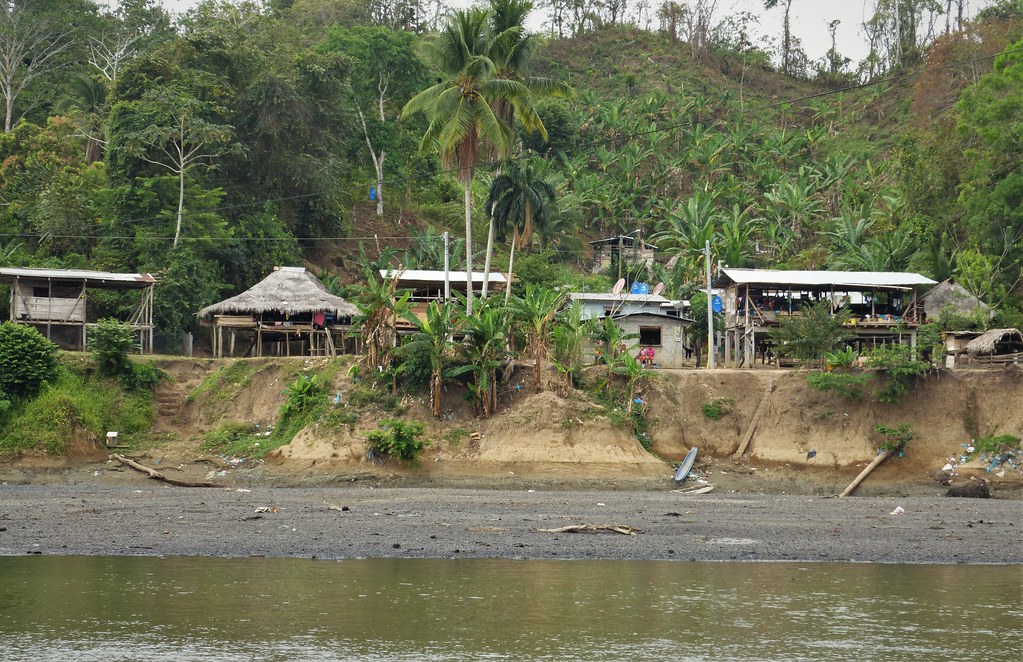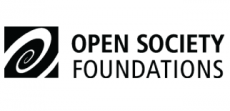Governance in Transit: Migration Control and Cartel Power in the Darién Gap
Posted
Time to read
Guest post by Madeline Carpenter. Madeline Carpenter is a nonprofit professional and independent researcher based in Washington, DC. She works at AsylumWorks, a migration-focused nonprofit organization, coordinating operations that support asylum seekers and forced migrants. She has previously worked with the International Rescue Committee, supporting refugee employment and integration efforts. Her independent research explores issues of migration, displacement, and border governance. Madeline holds dual Bachelor's degrees in International Studies and Political Science from the University of North Carolina at Wilmington. The views expressed in this article are her own and do not represent those of AsylumWorks.
Known among migrant communities as “the green hell,” the Darién Gap is the 70-mile stretch between Colombia and Panama that, despite being located between two sovereign nations, operates with minimal law enforcement or official government oversight. This is the only land corridor between Central and South America, making it a crucial gateway for those trying to migrate North on foot. Many migrants make this journey in search of safety and opportunity in a new country. In 2023 alone, an estimated 520,085 migrants crossed the Darién Gap, and hundreds of thousands continue to make the journey every year. However, it is difficult to imagine a more harrowing journey to take on foot. Dense rainforest, unpaved trails, steep mountains, and rushing rivers characterize the Darién Gap. Perils of the unnatural sort also pose significant risks to those attempting to cross. Due to weak governance, corruption, and the region’s unruly terrain, the Darién Gap has become a hub for illicit activity from criminal groups, such as armed drug cartels and traffickers. Enabled by complicit government officials and systemic inaction, these groups not only force migrants to be strategic human shields but also unwilling contributors to unlawful operations. Similar patterns of exploitation have been identified in many migration hotspots all over the world, particularly during times when migration levels are surging. However, the increasing influence of right-wing populism and anti-immigration sentiment, particularly in the U.S. and Western Europe, has raised questions about how Western governments confront migration pathways outside their borders.
The absence of a formally recognized government structure in the Darién Gap has enabled the newly elected Trump Administration in the United States to claim they would “shut down” the Darién to fulfill Donald Trump’s campaign promise of dramatically reducing migrant crossings into the United States. Tom Homan, appointed by President Trump as the administration’s border czar, stated that the U.S. government intends to collaborate with Mexico, Colombia, and Panama to implement this policy objective of restricting passage through the jungle. The effects of the Trump administration’s policies are already being felt as mass deportations rise and government channels previously used by migrants traveling through the Darién Gap to apply for asylum and refugee status have been shut down. The administration has deported migrants seeking asylum at the Mexico-U.S. border to Panama, regardless of their country of origin. The Panamanian government has responded by issuing these migrants temporary humanitarian passes, sparking criticism from international organizations and lawyers who claim that the government of Panama has allowed the migrants to be mistreated in their custody. Some migrants have since been moved from a hotel in Panama City to a migrant camp in the Darién region if they refused repatriation, a move also criticized as a way to absolve the Panamanian government of any responsibility in the matter.

In an executive order made on Trump’s inauguration into office, the administration designated all drug cartels as Foreign Terrorist Organizations. This designation expands the U.S. government’s legal authority to target these groups through sanctions, law enforcement collaboration, and military action. It also allows for the prosecution of individuals who knowingly interact with these cartels directly or indirectly. If the Trump administration intends to heighten intervention in the region to curb migration, they will be forced to confront cartels operating in the Darién, affecting northbound migrants. Given that illegal organizations, smugglers, and traffickers are almost invariably part of migration pathways, critical questions are raised about who has the authority to create and enforce the standards that regulate migration governance in regions with no sustained state oversight. As migrants navigate stateless zones and interact with violent groups, it is crucial to examine how both national and foreign governments shape migration policies and enforce borders, often by outsourcing responsibility to other states or external actors.
The Gulf Clan, also known as Clan de Golfo, is the drug cartel with the most significant presence in the Darién Gap region. It is a Colombian cartel born from the United Self-Defense Forces of Colombia after it dissolved in the early 2000s. Since then, the Clan has contrived a system in this region that does not allow most migrants to cross the Darién Gap without engaging with the cartel in some capacity. Some estimate that the Clan made over $50 million in 2023 from its implemented migration system. It operates as a de facto authority, taxing migration routes and monopolizing services like guides, lodging, and supplies. While the Gulf Clan benefits financially from human movement, it further cements its political legitimacy through unchecked power.
The Gulf Clan has attempted to leverage this power by appealing to the Colombian government’s “total peace” initiative led by Colombia’s president, Gustavo Petro. In a statement, Gulf Clan leaders outwardly expressed a willingness to work with the governments of Colombia and the United States to regulate the flow of migration through the Darién Gap. This came a few months after the Colombian government stated that government representatives were willing to converse with the Gulf Clan about a movement toward peace. However, this statement was made days before the 2024 election in the United States, and neither the Trump nor Biden administration publicly commented on this statement.
The Darién Gap is a distinctive intersection of high migration levels, highly organized criminal groups, state fragility, and international intervention. These factors point to a broader reality that evolves daily. Policing migration routes is not just about border governance but how broadly conflicting political interests and drug trafficking routes directly affect the safety of migration pathways. As the Trump administration continues its campaign to slash border crossing numbers, it faces diplomatic hurdles and the potential consequences of overriding the authority of dangerous actors. The designation of the Gulf Clan as a terrorist organization is perceived as a hardline approach, but whether this will result in an escalated conflict remains to be seen. The focus of the Trump administration not just on migrants entering the United States but also on policing migration passageways makes these questions more pressing. Conversely, the Colombian government’s “total peace” initiative continues to be harshly criticized, raising questions about whether negotiations with armed groups like the Gulf Clan are a viable long-term solution or an ephemeral diplomatic move.
Without comprehensive migration policies, power can easily be harnessed by those willing to exploit vulnerable populations moving through transit zones. The lack of universal migration regulation, combined with the current political climate, sets the stage for potential militant volatility. It is clear that campaigning on stricter migration policy is an increasingly effective political bargaining chip despite research that border control tends to have counterproductive effects on migration levels. There is no indication that migration levels will decrease without addressing the root causes of human movement. By enforcing stricter border policies and eliminating legal pathways, the new age of U.S. border policy may incentivize the illicit networks they aim to subdue.
Any comments about this post? Get in touch with us! Send us an email, or find us on LinkedIn and BlueSky.
How to cite this blog post (Harvard style):
M. Carpenter. (2025) Governance in Transit: Migration Control and Cartel Power in the Darién Gap . Available at:https://blogs.law.ox.ac.uk/border-criminologies-blog/blog-post/2025/03/governance-transit-migration-control-and-cartel-power. Accessed on: 05/04/2025Share
YOU MAY ALSO BE INTERESTED IN
With the support of









